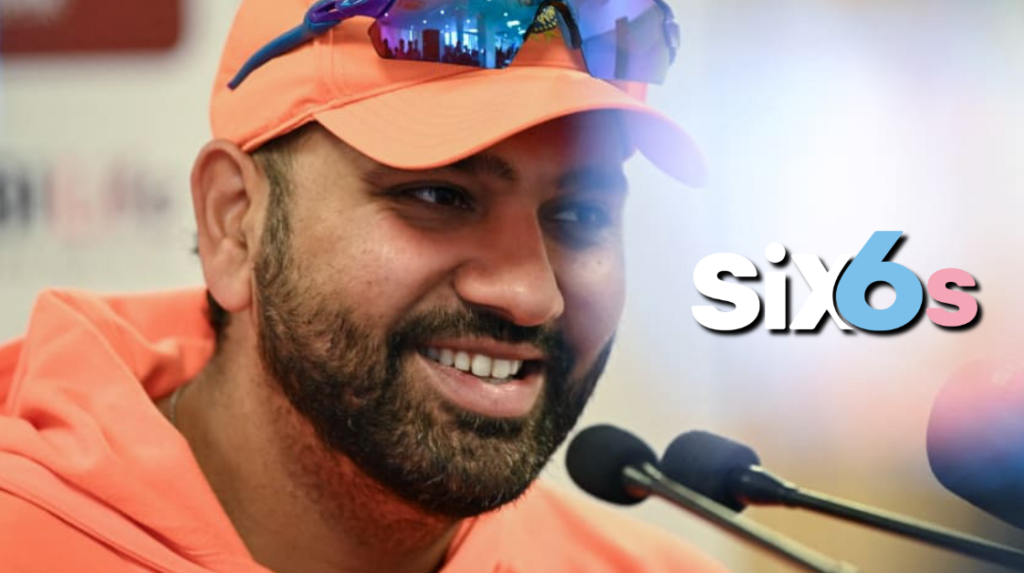The cricketing world has been buzzing with the term “Bazball” ever since England’s new aggressive approach under Brendon McCullum took center stage. But is it a revolution, or just a catchy nickname? Indian captain Rohit Sharma seems to have his doubts, sparking a playful yet pointed exchange with England’s Ben Duckett.

Test cricket has long been known for its tactical battles and patient batting. However, the arrival of Brendon McCullum as England’s Test coach has ushered in a new era of aggressive play, dubbed “Bazball” by the media. This approach emphasizes scoring runs quickly and putting pressure on the opposition, even in red-ball cricket. While some have lauded it as a breath of fresh air, others remain skeptical.
WHAT IS BAZBALL?
Bold and entertaining: At its core, Bazball is about taking the initiative and being proactive. England’s batsmen are encouraged to score freely, even against the swinging new ball. This often leads to exciting batting displays with a higher risk-reward ratio.
Shifting gears: While Bazball promotes aggression, it’s not simply about mindless slogging. Adaptability is key. Batsmen need to recognize situations where they need to consolidate or counter-attack.
Bowling with purpose: The bowling attack, too, plays a crucial role. While there’s an emphasis on taking wickets, containing runs and creating pressure is still vital.
ROHIT SHARMA PLAYS DOWN THE HYPE
“Don’t know what Bazball means”: Ahead of the fifth and final Test against England in the 2024 World Test Championship series, Indian captain Rohit Sharma expressed confusion about the term “Bazball.” In a press conference, he jokingly said, “I honestly don’t know what [Bazball] means, whether it is to go and strike, whether it is to go and defend and wait for the loose ball.” This lighthearted comment highlighted the ambiguity surrounding the term and its lack of a defined strategy.
“Credit to good batting”: Sharma further downplayed the impact of Bazball, suggesting that England’s success in the series stemmed from good individual performances. He praised their batsmen for scoring big runs, but didn’t attribute it solely to a specific philosophy.
“Maybe Duckett hasn’t seen Pant bat”: In a playful jab at England opener Ben Duckett, who had previously credited Bazball for the aggressive batting of young Indian opener Yashasvi Jaiswal, Sharma remarked, “There was a guy called Rishabh Pant in our team, probably Ben Duckett hasn’t seen him play.” The astute response revealed that Indian hitters had always displayed hostility; it was nothing new.
THE FUTURE OF BAZBALL
Early days, promising signs: While it’s still early to judge the long-term effectiveness of Bazball, England’s recent performances have been impressive. They displayed a more positive and attacking approach compared to their previous tour of India.
Sustainability and adaptability: The key question remains: can Bazball be sustained across different conditions and against all types of bowling attacks? Adapting the strategy to suit the opposition and the match situation will be crucial for its long-term success.
A new chapter for Test cricket?: Whether Bazball becomes a defining feature of Test cricket or simply a passing fad is yet to be seen. However, it has undoubtedly sparked a conversation about the future of the longest format and its need to evolve and remain captivating for audiences.
Conclusion:
The “Bazball” debate is likely to continue as England continues to play with this aggressive approach. Rohit Sharma’s playful yet pointed comments highlight the ambiguity surrounding the term and the ongoing discussion about its effectiveness. Ultimately, time will tell if Bazball is a revolutionary strategy or just a catchy nickname for a more positive brand of Test cricket. There’s no denying that Test cricket’s future holds great promise as teams continue to innovate the game.
